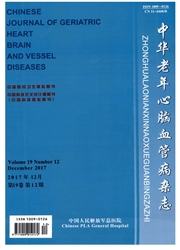

 中文摘要:
中文摘要:
目的研究不同流体切应力条件下,内皮祖细胞组织纤溶酶原激活物(tissue-type plasminogen activator,t-PA)基因表达的变化。方法分离健康志愿者外周血的单个核细胞并诱导分化成内皮祖细胞,并通过相差显微镜和免疫荧光标记等方法进行形态学观察和鉴定。种植内皮祖细胞到小径人工血管表面后,分为静态组、低切应力组(0.5Pa)、中切应力组(1.5Pa)和高切应力组(2.5Pa)4个不同处理组,之后用ELISA各组不同时间点培养液中t-PA的水平,并用半定量RT-PCR测定切应力处理25h后,不同切应力组内皮祖细胞t-PA的基因表达。结果外周血单个核细胞在体外诱导分化成为内皮祖细胞,ac-LDL吞噬及lectin抗体荧光标记双阳性,FLK-1和vWF免疫荧光抗体染色均为阳性。提高流体切应力可以增加t-PA的分泌,上调内皮祖细胞t-PA的基因表达。结论提高流体切应力能明显促进内皮祖细胞t-PA的分泌和基因表达,有助于改善内皮祖细胞的生理功能。
 英文摘要:
英文摘要:
Objective To observe the gene expression of tissue-type plasminogen activator (t-PA) in human endothelial progenitor cells (EPCs) under shear stress condition. Methods The peripheral blood mononuclear cells of healthy volunteers were separated and induced to differentiate into EPCs, which were morphologically observed and identified by method of phase contrast microscopy and fluorescent immunological labeling. EPCs were seeded on the small calibre artificial vessels, and divided into four different experimental groups, including stationary group,low-flow shear stress group (0.5 Pa),medium-flow shear stress group (1.5 Pa)and highflow shear stress group(2.5 Pa). Then, the levels of t-PA from EPC culture media of four groups were measured by method of enzyme-linked immunosorbent assay, and the t-PA gene expression in human EPCs was analyzed by semi-quantitative reverse transcriptase real-time polymerase chain reaction. Results The peripheral blood mononuclear cells differentiated into EPCs. They were positively labeled by fluorescent acetylated-LDL, lectin,FLK-1 and vWF. Shear stress not only enhanced t-PA production by EPCs, but also upregulated the t-PA mRNA expression in human EPCs. Conclusiom Shear stress increases the t-PA secretion and gene expression in human EPCs, which may contribute to improving the therapeutic potential of EPCs for vascular injury.
 同期刊论文项目
同期刊论文项目
 同项目期刊论文
同项目期刊论文
 Effects of fluid shear stress on eNOS mRNA expression and NO production in human endothelial progeni
Effects of fluid shear stress on eNOS mRNA expression and NO production in human endothelial progeni 期刊信息
期刊信息
